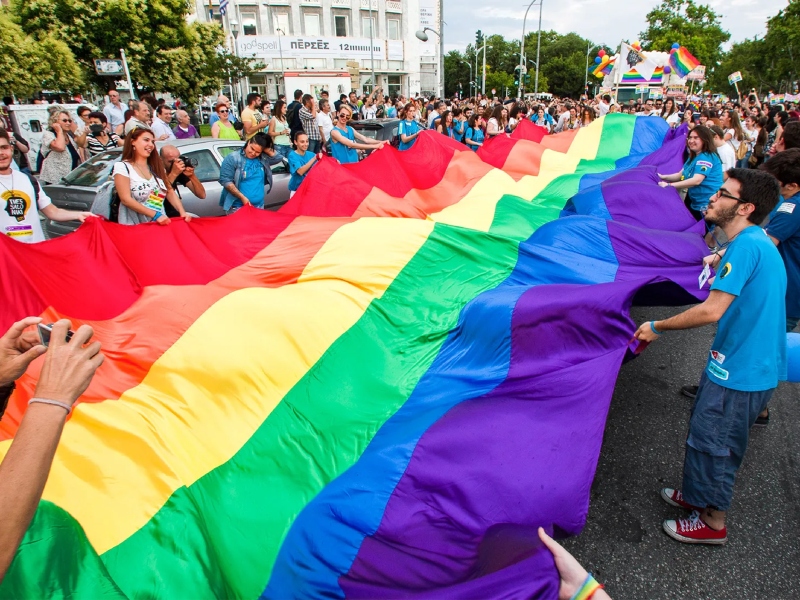The issue of gay rights and the constitutional protection of homosexual conduct has long been a subject of contentious legal debate in the United States.
Over the years, landmark Supreme Court decisions have shaped the legal framework surrounding this issue, leaving many questions unanswered and raising concerns about the treatment of individuals based on their sexual orientation.
In the 1986 case of Bowers v. Hardwick, the Supreme Court considered the constitutionality of a Georgia law criminalizing sodomy, particularly homosexual conduct.
Despite arguments invoking the right to privacy recognized in cases such as Griswold v. Connecticut and Roe v. Wade, the Court ruled 5 to 4 that the law did not violate constitutional protections. This decision underscored the legal ambiguity surrounding the rights of individuals to engage in consensual homosexual conduct.
A decade later, the Supreme Court revisited the issue in Romer v. Evans, which challenged a provision in the Colorado Constitution prohibiting laws that protected homosexuals from discrimination.
In a 6 to 3 decision, the Court struck down the provision, finding it lacked a rational basis and violated the equal protection rights of homosexuals. This decision marked a significant shift in the Court’s approach to gay rights and laid the groundwork for future challenges to discriminatory laws based on sexual orientation.
The legal landscape continued to evolve with subsequent cases such as Lawrence v. Texas, where the Court overturned its previous decision in Bowers v. Hardwick and held that laws criminalizing homosexual sodomy were unconstitutional.
This decision, coupled with later cases like United States v. Windsor and Obergefell v. Hodges, signaled a broader recognition of the rights of same-sex couples, including the right to marry and equal protection under the law.
Despite ongoing debate and dissenting opinions, these landmark decisions have played a pivotal role in advancing gay rights and shaping the legal landscape for future generations.
Key arguments for gay rights include
- Equality and Human Rights: Advocates argue that everyone, regardless of sexual orientation, should have equal rights under the law. Denying rights to individuals based on their sexual orientation is considered discriminatory and a violation of human rights.
- Freedom of Expression and Identity: Supporting gay rights aligns with principles of freedom of expression and the right to self-identify. Individuals should have the freedom to express their sexual orientation openly without fear of discrimination or persecution.
- Family and Relationship Recognition: Advocates argue for legal recognition of same-sex relationships, including marriage, adoption rights, and other legal protections. This recognition is seen as essential for the well-being and stability of same-sex couples and their families.
- Health and Well-being: Discrimination against LGBTQ+ individuals can have negative effects on their mental and physical health. Protecting gay rights is essential for promoting the well-being of LGBTQ+ individuals and reducing disparities in healthcare access and outcomes.
- Historical Injustice: LGBTQ+ individuals have faced historical discrimination and marginalization. Supporting gay rights is seen as a way to address past injustices and promote social equality and inclusion.
Key arguments against gay rights include
- Religious Beliefs: Some opponents of gay rights argue that certain religious beliefs view homosexuality as immoral or sinful. They may argue for exemptions from anti-discrimination laws based on religious freedom grounds.
- Traditional Values: Opponents may cite traditional or cultural values that prioritize heterosexual relationships and view homosexuality as deviant or abnormal. They may argue that legalizing same-sex marriage or other rights undermines traditional family structures.
- Parental Concerns: Some opponents express concerns about the impact of gay rights on children, particularly regarding issues like adoption by same-sex couples or LGBTQ+ inclusive education in schools. They may argue that children benefit from being raised in households with both a mother and father.
- Social Stability: Opponents may argue that legalizing gay rights could have negative societal consequences, such as undermining the institution of marriage or family values. They may express concerns about the broader impact on social norms and stability.
- Public Health and Morality: Some opponents may raise concerns about public health issues associated with LGBTQ+ lifestyles, such as higher rates of certain health conditions or behaviors. They may frame their opposition in terms of protecting public health or upholding moral standards within society.

